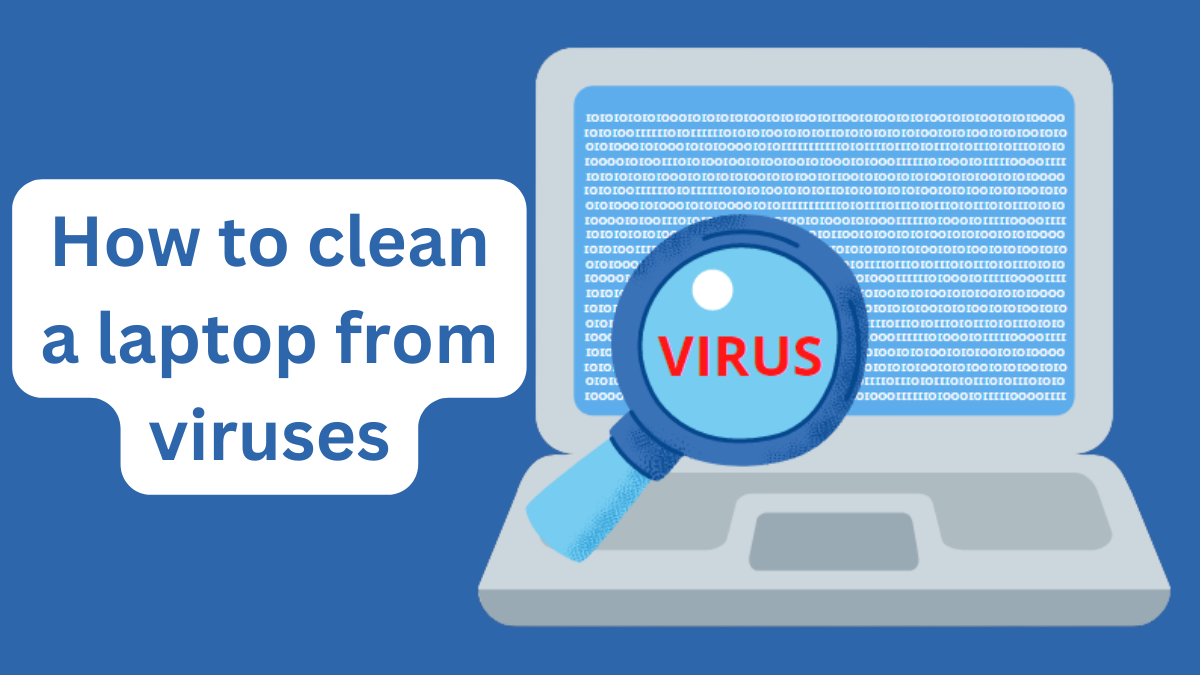Are you worried about computer viruses infecting your laptop? You’re right to be. Viruses can wreak havoc on your system, compromising your data, slowing down your performance, and even crashing your laptop completely.
But don’t worry, there are steps you can take to protect your laptop from viruses and remove them if they do get infected.
Understanding Computer & Laptop Viruses
A computer virus is a malicious software program that can infect your laptop and cause various issues. These viruses can replicate, spread, and damage files and applications on your system. They can be transmitted through infected websites, email attachments or even removable storage devices.
Once a virus infiltrates your laptop, it can compromise your data, slow down your system, and even gain unauthorized access to sensitive information.
Common Causes of Computer & Laptop Viruses
To protect your laptop, you need to be aware of the common causes of virus infections. Understanding the common causes of laptop viruses will help you avoid falling into the traps that cybercriminals set.

There are a number of ways that your PC can become infected with a virus. Here are some of the most common causes:
- Unsecured Downloads: Downloading files, software, or attachments from untrustworthy sources can introduce viruses to your laptop.
- Infected Websites: Visiting malicious websites or clicking on suspicious links can lead to virus infections.
- Email Attachments: Opening email attachments from unknown or unverified sources can introduce viruses.
- Outdated Software: Failing to update your operating system and software can leave vulnerabilities that viruses exploit.
How to Remove a Computer Virus from Your PC
When you’re battling a virus-infected laptop, taking immediate action is crucial. When it comes to removing viruses from your laptop, there are several effective methods you can try:
- Use Antivirus Software: Installing reputable antivirus software is one of the most reliable ways to detect and remove viruses. Popular antivirus programs like Norton, McAfee, and Avast offer real-time scanning, quarantine features, and regular updates to keep your laptop protected.
- Run a Full System Scan: Once you have antivirus software installed, perform a full system scan to identify and eliminate any viruses or malware. This process may take some time, but it is crucial for a thorough cleaning.
- Delete Suspicious Files and Applications: Manually check your laptop for any suspicious files or applications that may be infected. If you identify any, delete them immediately to prevent further spread of the virus.
- Update Your Operating System: Keeping your operating system up to date is vital for security. System updates often include patches and fixes that address vulnerabilities and help protect your computer from viruses.
- Disconnect from the Internet: If you suspect your laptop is infected, disconnect it from the Internet to prevent the virus from spreading or communicating with its source. This will give you time to clean your laptop without further compromising your data.
- Restore from a Backup: If you have a recent backup of your laptop’s data, consider restoring your system to a previous clean state. Be cautious as this may result in the loss of any data or changes made since the backup.
Maintenance Tips to Protect Your Laptop from Viruses
Prevention is often better than cure when dealing with computer viruses. Here are some proactive measures you can take to protect your laptop:
- Install and Update Antivirus Software: As mentioned earlier, having reliable antivirus software is essential. Ensure that it is installed and regularly updated to defend against the latest threats.
- Exercise Caution with Email Attachments and Links: Be cautious when opening email attachments or clicking on links, especially if they are from unknown or suspicious sources. These can be common vectors for virus transmission.
- Avoid Downloading from Untrusted Sources: Downloading software, files, or media from untrusted sources can expose your laptop to viruses. Stick to reputable websites and app stores when downloading content.
- Keep Your Firewall Enabled: Enable the firewall on your laptop’s operating system to monitor and control incoming and outgoing network traffic, providing an extra layer of protection against viruses.
- Regularly Back Up Your Data: Create regular backups of your important files and documents. In the event of a virus infection or system failure, having backups ensures that you don’t lose valuable information.
How to Get Help with Laptop Viruses and Security
Dealing with a virus on your PC can be challenging, especially if it’s a tricky one. In these situations, it’s best to seek professional support. That’s where TickTockTech comes in.
TickTockTech specializes in helping with virus removal and providing comprehensive security solutions. Our experienced team will assist you in getting rid of viruses on your laptop and even keep your data protected. If you ever encounter a virus on your laptop, don’t hesitate to contact TickTockTech for fast and reliable help.
Frequently Asked Questions
Clearing a virus from your laptop requires a combination of antivirus software scans, manual deletion of infected files, and system updates. It’s advisable to consult professional support if you’re unsure or facing difficulties.
While it’s not recommended, you can manually remove a virus by identifying and deleting suspicious files and programs. However, using antivirus software or a malware removal tool is a safer and more effective approach.
There are several reliable antivirus options available, including Norton, McAfee, Avast, and Bitdefender. Each has its own features and benefits, so choose one that suits your specific needs and preferences. If you’re unsure about which antivirus software to go with, contact our tech support for advice.
Some common signs of a virus-infected laptop include slow performance, frequent crashes, unusual error messages, unexpected pop-ups, and unexplained changes in system settings. However, these symptoms can also be caused by other factors, so it’s important to run antivirus scans to confirm the presence of a virus.

